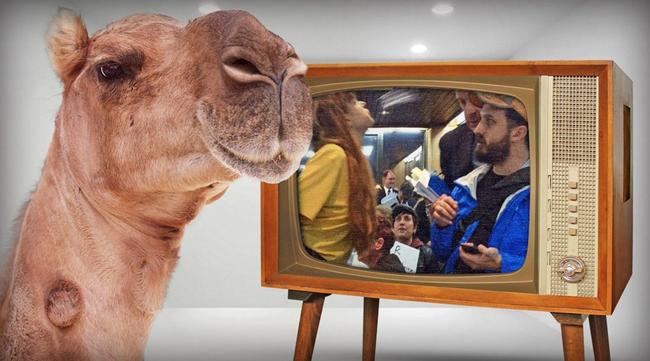The strange politics of spitting in someone’s face
THE glob sailed through the air in a graceful arc, maintaining its gooey form until it struck its target with supreme precision.

Ballina
Don't miss out on the headlines from Ballina. Followed categories will be added to My News.
THE glob sailed through the air in a graceful arc, maintaining its gooey form until it struck its target with supreme precision.
It was one of the foulest things I have witnessed since my rotund uncle did a nude duck-dive in a seaweed infested canal.
Comic illustrator Nicky Minus this week pleaded guilty to spitting in the face of a government official at a protest over the creation (through forced amalgamation) of the new Inner West Council in Sydney.
You probably saw the footage: a screaming ginger-haired woman leans forward and hocks a gigantic loogie right onto the face of the freshly-formed council's administrator, Richard Pearson.
The court gave Minus an 18-month good behaviour bond, but her reputation as a spitter might take longer to expire.
In one mouthful, she averted attention from the protesters' legitimate reason for being there - unelected lackeys have been summarily installed to push through the State Government's agenda without oversight from pesky elected councils - and made it all about that broken taboo.
Woman who spat at council official at Inner West Council meeting has received good behaviour bond. @LeonieFRyan https://t.co/cQEJmwQjul
— 7 News Sydney (@7NewsSydney) June 16, 2016
Full disclosure: I love the odd salivary expulsion.
Find me a nice cliff and, after lobbing a few rocks, I will shoot off some would-be dribble into the depths below.
Even the bushman's blow debatably has a function, as any hanky-challenged rugby league player who has an on-field nose-blow will attest.
But there is a time and place, and spitting in someone's face falls short of the criteria.
It got me thinking about the changing politics of expelling saliva.
Back in the Middle Ages, it was the done thing to have a public spit in Western society because swallowing saliva and whatnot was considered unclean.
There were rules.
One could spit under the table while eating, but never across it. While standing, it was perfectly acceptable to spit while standing so long as one rubbed it into the dirt with his foot.
Some aristocratic-types as early as the 15th Century had begun to snub their nose at the uncivilised practice, but it was not until the discovery of tuberculosis bacteria in 1882 that a real public campaign to ban it began.
It was more to do with avoiding a plague than manners - the disease-causing bacteria were thought to survive for a full day in saliva.
Asian countries have typically been less worried about the practice, although China has implemented several unsuccessful campaigns to rein it in since the New Life civic education movement in the 1930s - not only for health, but also to minimise the disgust of judgmental tourists.
Here in Australia, police and paramedics face the ever-present threat of being spat on by people who might be infected with Hepatitis C, HIV or some other life-altering disease.
They have sometimes had to wait an agonising six months before learning if they were infected.
It has prompted several police jurisdictions to introduce "spit hoods" - cloth hoods, similar to those beekeepers wear, which cover the nose and mouth of alleged offenders who make threats or have a history of spitting at officers.
Buddha, who is believed to have lived between the sixth and fourth centuries before Christ, presumably knew little about transferring disease through saliva.
An ancient parable tells the story of a stranger who spat in Buddha's face but received no reaction.
He returned the next day, confused and remorseful, throwing himself at Buddha's feet to beg for forgiveness.
None was forthcoming.
"The Ganges goes on flowing, it is never the same Ganges again," Buddha said.
"Every man is a river. The man you spit upon is no longer here.
"I look just like him, but I am not the same, much has happened in these 24 hours!
"The river has flowed so much. So I cannot forgive you because I have no grudge against you."
Astonishingly, I am not quite as forgiving as Buddha. -ARM NEWSDESK
Strange Politics is a satirical column. Follow Chris Calcino on Twitter: @ChrisCalcino

Originally published as The strange politics of spitting in someone’s face


